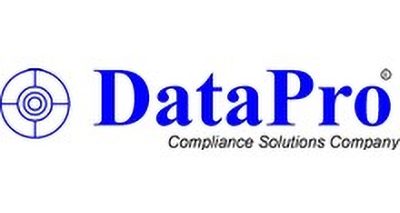The Nigerian insurance landscape has been significantly reshaped by the Nigerian Insurance Industry Reform Act 2025 (NIIRA 2025), impacting how credit rating agencies assess insurance firms. DataPro Nigeria, a leading credit rating agency, highlights the Act’s influence on several key rating criteria, including the operating environment, capital adequacy, business model strength, profitability, regulatory compliance, and governance. The Act’s emphasis on risk-based capitalization, compulsory insurance expansion, and enhanced regulatory oversight necessitates a more nuanced evaluation of insurers’ financial health and operational resilience.
The NIIRA 2025 introduces a more stringent regulatory environment, pushing insurers to adapt to risk-based capitalization and navigate evolving macroeconomic conditions. DataPro’s rating methodology now emphasizes an insurer’s ability to comply with these new standards while maintaining competitiveness. This includes assessing the insurer’s market share, brand recognition, product diversification, geographic reach, policyholder base, and revenue stability. Larger insurers may benefit from economies of scale and brand recognition, while smaller players can carve out niches through specialized products or strong customer loyalty. Diversification across product lines, geographic areas, and policyholders mitigates concentration risks, and recurring premium income streams are favored over one-off or project-based revenue.
Capital adequacy remains a critical rating factor, but the emphasis has shifted from sheer size to the quality and flexibility of capital. Well-capitalized insurers are better equipped to withstand financial shocks, while those with limited or unreliable capital bases face greater challenges. The 12-month compliance window provided by the Act may trigger industry consolidation, with some firms seeking mergers or acquisitions to meet the heightened capital requirements. This drive for consolidation underscores the importance of not only meeting the minimum capital threshold but also demonstrating the ability to strategically manage and deploy capital for sustainable growth.
Profitability continues to be a key indicator of financial strength. Sustained profitability hinges on factors such as diversified product offerings, sound underwriting practices, and efficient claims management. The NIIRA 2025’s focus on prompt claims settlement reinforces the importance of underwriting discipline and customer service, both of which directly impact an insurer’s bottom line. Insurers that demonstrate a consistent ability to generate profits while adhering to stricter claims settlement timelines will be viewed more favorably by rating agencies.
Regulatory compliance has gained even greater prominence in the rating process, given NAICOM’s expanded supervisory powers under NIIRA 2025. Insurers demonstrating transparency, timely reporting, and adherence to the new regulations will enhance their ratings and market credibility. The Act sets a higher bar for the Nigerian insurance industry, aiming to bolster resilience, increase market participation, and strengthen consumer confidence. Those insurers that prioritize compliance and demonstrate a commitment to ethical business practices will be well-positioned for success in this evolving regulatory landscape.
Strong corporate governance and robust risk management systems are essential for mitigating operational risks, particularly in the context of increasing digitization and the adoption of insurtech. As the sector embraces technological advancements, insurers must balance the benefits of enhanced efficiency and broader reach with the potential risks of system failures and cyber threats. DataPro emphasizes the need for robust internal controls, data security measures, and business continuity plans to safeguard against these emerging risks. Insurers that demonstrate a proactive approach to risk management will be viewed as more resilient and trustworthy.
The NIIRA 2025 marks a significant turning point for the Nigerian insurance industry. Insurers that can adapt to the new regulatory environment, strengthen their capital base, refine their business models, maintain sustainable profitability, prioritize regulatory compliance, and embrace robust governance practices will be best positioned to thrive in this new era. These factors, collectively, contribute to an insurer’s overall creditworthiness and market standing, reflecting their ability to meet obligations, navigate challenges, and deliver value to policyholders. The Act’s emphasis on consumer protection, transparency, and financial stability underscores the importance of a holistic approach to insurance regulation, fostering a more robust and trustworthy insurance market in Nigeria.














